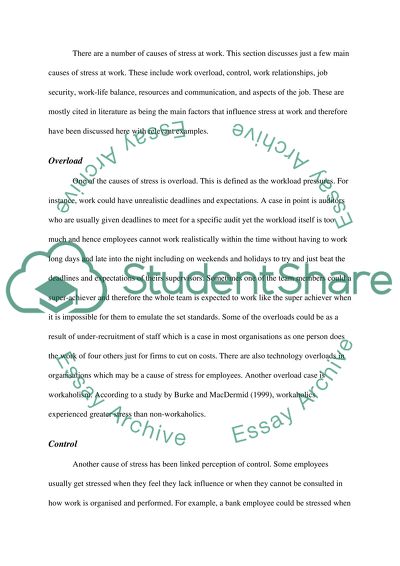Cite this document
(“What is stress at work Main causes of stress at work and effects on Essay”, n.d.)
Retrieved from https://studentshare.org/psychology/1495105-what-is-stress-at-work-main-causes-of-stress-at-work-and-effects-on-individuals
Retrieved from https://studentshare.org/psychology/1495105-what-is-stress-at-work-main-causes-of-stress-at-work-and-effects-on-individuals
(What Is Stress at Work Main Causes of Stress at Work and Effects on Essay)
https://studentshare.org/psychology/1495105-what-is-stress-at-work-main-causes-of-stress-at-work-and-effects-on-individuals.
https://studentshare.org/psychology/1495105-what-is-stress-at-work-main-causes-of-stress-at-work-and-effects-on-individuals.
“What Is Stress at Work Main Causes of Stress at Work and Effects on Essay”, n.d. https://studentshare.org/psychology/1495105-what-is-stress-at-work-main-causes-of-stress-at-work-and-effects-on-individuals.


